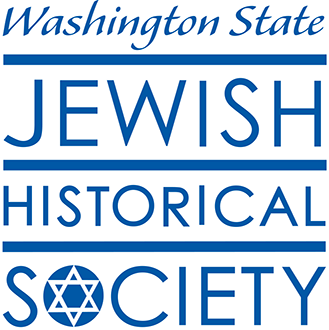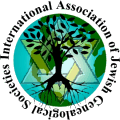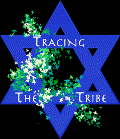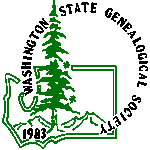Meetings
JGSWS meets on the second Monday of each month, from September through June. Admission is free.
NEXT MEETING (via Zoom):
"Crossing the Ocean: US Records to Ancestral Towns,"
presented by Susan WeinbergMonday, June 10, 2024, at 7 PM PDT via Zoom
(Zoom doors open at 6:30 PM)The JGSWS invites you to attend this meeting via Zoom. Zoom doors open at 6:30 PM for attendees to network and catch up with each other. The presentation begins at 7 PM. Registration is required.
To register for this meeting, click this link or copy it into your web browser:
https://us06web.zoom.us/meeting/register/tZIkdOygrzMrHNzstj-JmDPxO3nyrCk26Fhc
After registering, you will receive a confirmation email containing information about joining the meeting.
ABOUT OUR PROGRAM
Using case studies based on Lithuania, Latvia, Poland, and Belarus, we explore how to connect a wide variety of records and make use of many search engines. With these tools we cross the ocean from US records to locate ancestral towns and family within them. Much as with any journey, we identify where we are going, who we are going to visit, how we will communicate and how we assure we have the right luggage. Or in genealogy parlance, what is our ancestral town, who are the family members who resided there, how do we decipher documents, and how do we assure the people we are searching for are our family? This talk also addresses how to create finding tools to decipher records in Russian handwritten Cyrillic
ABOUT OUR SPEAKER
Susan Weinberg is an artist, author, researcher, and frequent speaker on genealogy topics. Drawing on her long career in finance, she often applies spreadsheets as an analytic tool in her genealogy research. Her creative work often involves storytelling and frequently explores family history themes.
Susan is the president of the Minnesota Jewish Genealogical Society (MNJGS), and vice president of the International Association of Jewish Genealogical Societies (IAJGS). She also serves on the board of the Jewish Historical Society of the Upper Midwest (JHSUM).
Susan developed the Jewish Identity and Legacy Project, an oral history project with elders, then authored the book We Spoke Jewish: A Legacy in Stories that includes oral history, artwork, and history on three groups of Jewish immigrants who spanned the 1900s. Susan has created and manages websites for several ancestral towns. She writes frequently for publications on genealogy topics and does genealogy research for clients around the world.
FUTURE MEETINGS
![]() September 9, 2024: Ellie Vance, "Navigating Russian Records for the Non-Russian Speaker"
September 9, 2024: Ellie Vance, "Navigating Russian Records for the Non-Russian Speaker"






